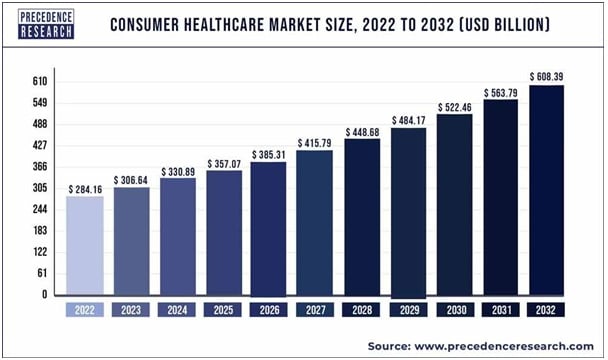The healthcare industry has undergone massive changes recently, mainly driven by technological advances. New technologies are transforming healthcare delivery and management, from electronic health records (EHRs) to telemedicine to wearable devices. One technology that holds particular promise for improving patient outcomes is custom healthcare software.
Custom healthcare software development services refer to specialized software solutions built specifically for healthcare organizations to streamline workflows and access patient data more efficiently. Given the complex nature of healthcare, off-the-shelf software often falls short of meeting the unique needs of hospitals, clinics, and other providers. On the other hand, solutions can be tailored to their precise requirements and integrated with existing infrastructure.

When designed thoughtfully, healthcare software services deliver a range of benefits that can, directly and indirectly, enhance patient outcomes:
Improved Access to Patient Data
Instant access to up-to-date patient records is critical for providers to deliver effective care. Custom medical software can consolidate data from disparate sources into user-friendly EHR systems accessible across devices. This gives caregivers a comprehensive overview of patient medical history to facilitate better-informed diagnoses and treatment decisions.
The Empeek specialists think that off-the-shelf platforms typically struggle with interoperability issues that lead to data silos, which impede efficient care. However, the strategic approach to custom medical software development focuses on seamless integration. This alleviates the data accessibility and analytics issues that generic systems face when adapting to complex healthcare environments. The custom-tailored data integration gives care teams comprehensive data in an actionable format for timely decision-making.
Enhanced Communication & Collaboration
Smooth communication and collaboration among care teams are vital for coordinating patient care plans. Custom platforms can include message boards, instant messaging, video conferencing, and file sharing to streamline provider-to-provider consultation. Such tools allow specialists to weigh in remotely, ensure continuity of care across transitions, and reduce delays in decision-making – all of which translate to better outcomes.
For more integrated at-home care, patient engagement tools embedded in custom portals further facilitate the sharing of updates, instructions, and health data between providers and patients.
Optimized Workflows & Operations
Inefficient workflows lead to lags, errors, redundancy, and burnout, all undermining care quality. Custom software can work out kinks in workflows by digitizing paperwork, eliminating repetition in documentation, balancing staff workloads, and automating mundane tasks.
For instance, mobile apps can enable nurses to quickly scan medication labels and patient IDs to log administration data at bedside rather than jotting notes to enter into the EHR later. Minor enhancements like this can substantially boost productivity and reduce the margin for error that threatens patient safety.
Additionally, analytics integrated into the software can track operational metrics like surgery turnover times and appointment wait times to identify and address problem areas causing bottlenecks. Smoother workflows and operations enable healthcare professionals to do their jobs more effectively and deliver better care.
Enhanced Compliance & Security
Non-compliance with healthcare regulations can put patient data at risk and bring steep penalties. To ensure compliance, custom software can be designed with built-in measures in line with HIPAA, HITECH, and other legal health data standards. Features like role-based access control, detailed audit trails, and data encryption further enforce security protocols customized to an organization’s infrastructure needs and policies. This protects sensitive patient information and supports better outcomes without disruptive security breaches.
Increased Patient Satisfaction
Positive patient experiences are linked to improved adherence, utilization of preventive services, and overall health outcomes. Custom portals with user-friendly interfaces can make accessing health records, booking appointments, and contacting providers easier for patients. Other features like self-check-in kiosks, virtual waiting rooms, and telehealth also increase convenience and satisfaction.
Additionally, data aggregation tools that pull patient information from wearables and at-home health devices into their portals empower patients to participate more actively in managing their health. Custom health services software development breeds the trust and loyalty necessary for optimal outcomes by designing the entire care journey around the patient.
Lower Costs & Resource Use
Spiraling costs are an endemic challenge in healthcare, threatening access and quality of care. Custom software designed with efficiency in mind can help rein in expenses directly and indirectly without compromising outcomes.
Features such as analytics-driven predictive modeling can flag patients at risk of complications so that interventions can be made early and costly episodes avoided. Similarly, inventory management modules can optimize medical equipment and drug stocks to prevent oversupply — lowering overhead costs that burden patients financially.
Additionally, automated features like scheduling tools and virtual assistants handle manual tasks so staff can dedicate more time to patients instead of paperwork. Optimized use of human resources boosted by software automation allows providing high-quality, high-touch care even with constrained budgets.
In Conclusion
The examples highlighted illustrate mechanisms by which tailored healthcare software solutions lead to better clinical and economic outcomes for providers and patients. As healthcare continues to digitize at an accelerated pace, custom platforms curated to organizations’ and populations’ distinct needs hold the key to unlocking software technology’s full potential for impacting patient care. Healthcare leaders would embrace custom health software development strategies to keep up with innovation and harness it to drive better performance.
Author Bio:
Roman Konstantinov
 Roman is the co-founder of Empeek who brings a breadth of knowledge to build, scale and transform healthcare organizations. He specializes in revitalizing struggling businesses and turning them into profitable enterprises. By emphasizing automation and effectively navigating the transition from startup to a sustainable and scalable model, Roman drives remarkable transformations to ensure long-term success.
Roman is the co-founder of Empeek who brings a breadth of knowledge to build, scale and transform healthcare organizations. He specializes in revitalizing struggling businesses and turning them into profitable enterprises. By emphasizing automation and effectively navigating the transition from startup to a sustainable and scalable model, Roman drives remarkable transformations to ensure long-term success.
LinkedIn: https://www.linkedin.com/in/roman-konstantinov-empeek/

